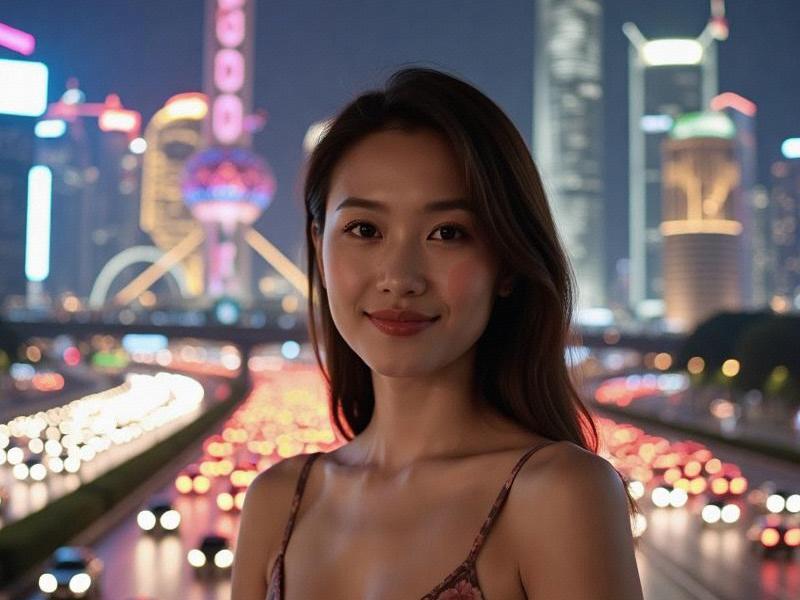This 2,600-word special report explores how Shanghai women are crafting a new paradigm of Chinese femininity that blends traditional values with global sophistication, creating one of Asia's most distinctive urban female identities.

The Shanghai Woman Phenomenon
Along the tree-lined avenues of the French Concession and amid the neon glow of Lujiazui's skyscrapers, a quiet revolution in feminine identity is unfolding. Shanghai's women - long celebrated as China's most stylish - are now pioneering a new model of urban womanhood that reconciles Confucian traditions with 21st-century globalism.
Style as Cultural Statement
Shanghai's streets serve as runways for sartorial innovation. The "New Cheongsam" movement sees young designers like Zhang Mei reinventing the traditional qipao with technical fabrics and architectural cuts, while maintaining its iconic silhouette. "We're creating wearable heritage," explains Zhang, whose Xintiandi boutique attracts both local tastemakers and international fashion editors.
爱上海同城419 Beauty standards have evolved beyond simple Western imitation. The rise of "Shanghai Face" - a celebration of distinctive local features rather than homogenized ideals - has sparked a boom in specialized cosmetic procedures at institutions like the Shanghai Ninth People's Hospital's aesthetic center. "Women now want enhancements that highlight their unique Shanghainese characteristics," notes Dr. Liu Wen.
Professional Powerhouses
Beyond aesthetics, Shanghai women are redefining workplace dynamics. Female entrepreneurs now launch 43% of the city's new businesses - the highest rate in China. Tech incubators like She Loves Tech Shanghai specifically support women-led startups, resulting in innovations like Ming Wu's AI-powered traditional medicine platform.
In corporate towers, a new generation of female executives is changing workplace culture. "The Shanghai Model" of leadership - combining decisive authority with collaborative grace - is being studied by business schools worldwide. "Our strength comes from balancing steel and silk," says banking executive Victoria Zhou.
上海龙凤阿拉后花园
Cultural Custodians & Innovators
Shanghai's women are simultaneously preserving and revolutionizing local culture. At the Shanghai Conservatory, pipa virtuoso Li Jia is creating crossover works blending Chinese classical with electronic music, while food blogger "Madame Mao" has become a national phenomenon by reinventing Shanghainese home cooking for health-conscious millennials.
The arts scene reflects this duality. Young female artists like video installation creator Xiao Lu explore themes of urban femininity in works that appear in both the Power Station of Art and international biennales. "Shanghai gives us roots to grow from and wings to fly with," she reflects.
上海龙凤419贵族 Challenges & Transformations
This evolution isn't without tensions. The city's notorious "marriage market" in People's Park still sees parents advertising their daughters' attributes, even as those daughters build independent lives. The pressure to "have it all" creates what sociologist Dr. Emma Chen calls "the Shanghai Paradox - unprecedented freedom coupled with impossible expectations."
Yet the overall trajectory points toward an increasingly confident, multifaceted feminine ideal. As third-generation Shanghainese photographer Ni Wei puts it: "Our grandmothers bound their feet, our mothers bound their ambitions - we're learning to walk tall in our own way."
In Shanghai's glittering towers and tranquil lane houses, a new chapter in Chinese womanhood is being written - one that honors tradition while embracing progress, proving that in this most cosmopolitan of Chinese cities, femininity isn't a fixed definition but an ongoing, glorious reinvention.